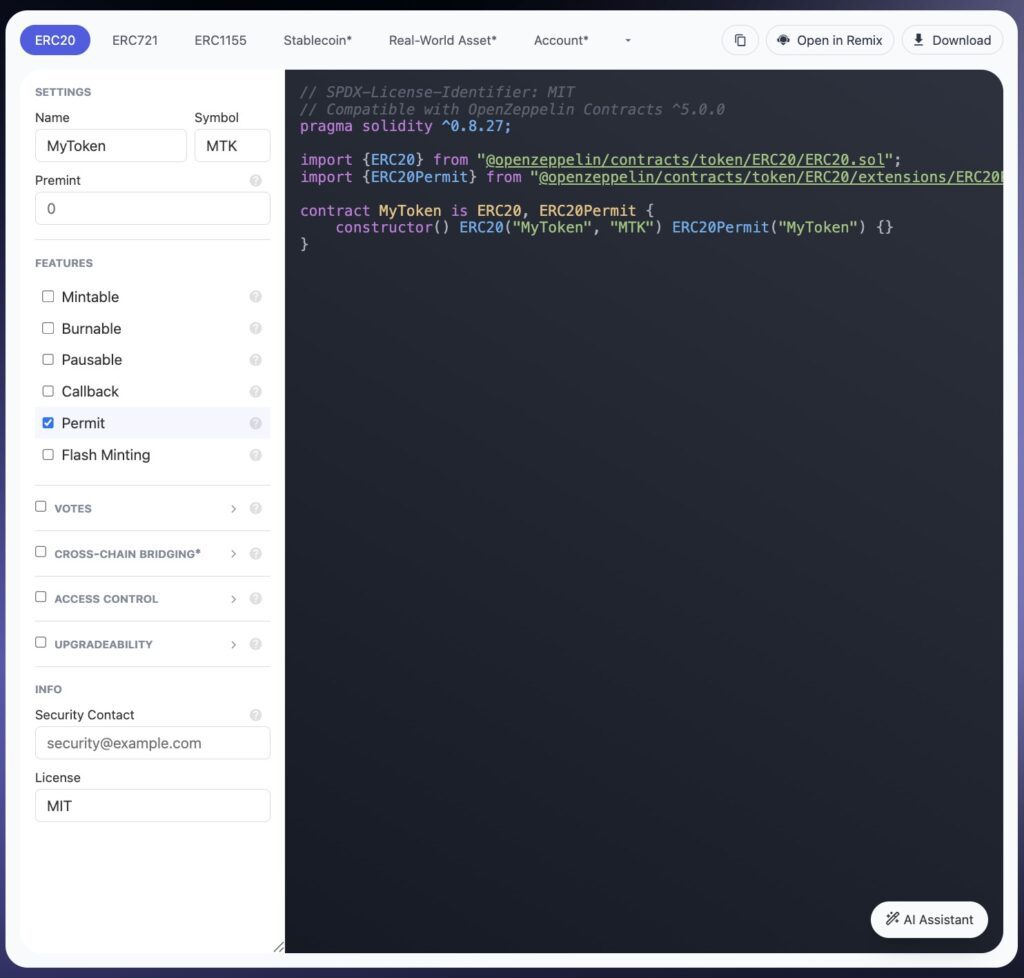In the fast-evolving world of blockchain, where digital assets worth billions are at stake, security is paramount. OpenZeppelin, a leading open-source platform, is the gold standard for protecting decentralized applications (dApps) and smart contracts.
Founded in 2016, OpenZeppelin provides developers with battle-tested tools and libraries to build secure blockchain projects, primarily on Ethereum and Ethereum-compatible blockchains. By offering pre-audited smart contract templates and advanced security solutions, OpenZeppelin reduces vulnerabilities, enabling developers to focus on innovation while safeguarding user funds. With over 3,000 projects powered by its tools and $26 trillion in value transferred, OpenZeppelin is a cornerstone of the decentralized economy.
Smart contracts are self-executing programs on blockchains that automate agreements, like transferring funds when conditions are met, without intermediaries. Written in languages like Solidity, they handle valuable assets, making them prime targets for hackers. OpenZeppelin addresses this by providing a library of secure, community-reviewed smart contract templates that support standards like ERC-20 (fungible tokens) and ERC-721 (NFTs). These templates reduce errors, as developers can reuse proven code instead of building from scratch, minimizing risks like reentrancy attacks or logic flaws.
OpenZeppelin’s Contracts and Defender
OpenZeppelin’s strength lies in its two flagship offerings – Contracts and Defender.
- The Contracts library provides modular, audited code for common blockchain functions, such as token creation, access control, and governance. For example, its role-based access control (RBAC) lets developers set permissions, ensuring only authorized users can perform actions like minting tokens. The library’s stable API and thorough documentation make it accessible, while support for standards like ERC-6909 enhances efficiency for multi-token systems. Recent updates, like v5.3 in April 2025, introduced custom errors to reduce gas costs and improve debugging, benefiting developers building complex dApps.

- The Defender, launched in 2020, is a web-based platform that automates and secures smart contract operations. It offers tools for workflow automation, transaction management, and team collaboration, simplifying secure deployment. Defender’s monitoring and scripting features help developers respond to threats quickly, such as pausing contracts during exploits. By integrating with platforms like Compound and Aave, Defender ensures secure operations across chains, making it vital for DeFi and NFT projects.
However, OpenZeppelin is sunsetting Defender by July 1, 2026, focusing on open-source Relayers and Monitor tools, which offer similar transaction and monitoring capabilities. Existing users receive support until the shutdown, with migration guides forthcoming.
Enhancing Security Through Community and Audits
OpenZeppelin’s security goes beyond tools. Its community-driven approach, including forums and bug bounty programs, encourages developers to report vulnerabilities, strengthening the ecosystem. The platform’s gold-standard audits, trusted by projects like the Ethereum Foundation and Coinbase, involve manual code reviews and business logic analysis to catch issues automated tools might miss. For instance, a 2023 audit uncovered a Cairo smart contract flaw in StarkNet, preventing potential losses. OpenZeppelin’s commitment to transparency, seen in its response to a December 2023 ERC-2771 vulnerability, ensures rapid mitigation and ecosystem-wide collaboration.
Introducing Blockchain Infrastructure Security Audits 🔒
Great smart contract code isn’t enough. Complex offchain components—nodes, clients, custom VMs—can become the weakest link and topple an entire onchain system.
We make sure that never happens 👇
— OpenZeppelin (@OpenZeppelin) May 28, 2025
Innovations and Future Impact
OpenZeppelin continues to innovate, addressing evolving blockchain challenges. Its support for upgradeable contracts, using techniques like storage gaps to reserve memory for future updates, ensures flexibility without compromising security. The v5.3 release in 2025 enhanced governance tools, supporting decentralized autonomous organizations (DAOs) and multi-token economies. Contributions like ERC-7201 for upgradeability and ERC-2771 for metatransactions have set industry standards, earning recognition in Ethereum’s RetroPGF rankings. As Layer 2 solutions and cross-chain protocols grow, OpenZeppelin’s tools remain foundational for secure development.
OpenZeppelin is more than a security platform, it’s a catalyst for blockchain’s growth. By providing secure, reusable code and automated tools, it empowers developers to build dApps with confidence, from DeFi protocols to NFT marketplaces. As blockchain adoption surges, OpenZeppelin’s mission to secure the open economy ensures developers and users alike can embrace decentralized innovation without fear.
Stay informed with daily updates from Blockchain Magazine on Google News. Click here to follow us and mark as favorite: [Blockchain Magazine on Google News].
Disclaimer: Any post shared by a third-party agency are sponsored and Blockchain Magazine has no views on any such posts. The views and opinions expressed in this post are those of the clients and do not necessarily reflect the official policy or position of Blockchain Magazine. The information provided in this post is for informational purposes only and should not be considered as financial, investment, or professional advice. Blockchain Magazine does not endorse or promote any specific products, services, or companies mentioned in this posts. Readers are encouraged to conduct their own research and consult with a qualified professional before making any financial decisions.